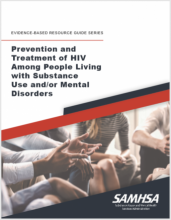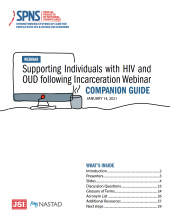
Language is foundational to how we understand and interact with ourselves and others. Unclear language can lead to confusion and inefficiencies, while stigmatizing and prejudicial language leads to harmful practices and dehumanizes people.



Language is foundational to how we understand and interact with ourselves and others. Unclear language can lead to confusion and inefficiencies, while stigmatizing and prejudicial language leads to harmful practices and dehumanizes people.
Building on last month’s episode about providing HIV and substance use care for people who are incarcerated, this month the Boston Medical Center Team talks with Dr.
Navigating the HIV and substance use systems of care presents a number of unique challenges, many of which can become more complex depending on a person’s housing, employment, mental health, or economic situation.
In response to an increased risk of overdose, several communities in the U.S. are considering establishing spaces for people to use substances safely.
Individuals who have HIV who also use drugs experience increased age-matched morbidity and mortality in comparison with those with HIV who do not use drugs.
This document describes the critical role that peers have in developing and delivering care for people with HIV and OUD and how a state’s Medicaid program can serve as an essential fiscal resource in supporting peer services.
This discussion guide is intended to elicit a comprehensive and concrete conversation about language, stigma, and discrimination as a means of strengthening care systems and ensuring that people who seek care for HIV and/or substance use disorders, including opioid use disorder, are treated with
This month’s Connecting Care episode continues the conversation about barriers to methadone treatment for patients, stigma, and what we can learn from other countries to advance policy and practice for methadone in the US.
This month’s Connecting Care episode discusses the challenges associated with entering and staying in methadone treatment programs and opportunities to improve treatment experiences for all.
This month’s Connecting Care episode discusses the impact of structural racism at the intersection of HIV and OUD care and opportunities to think outside of the box to effect change.